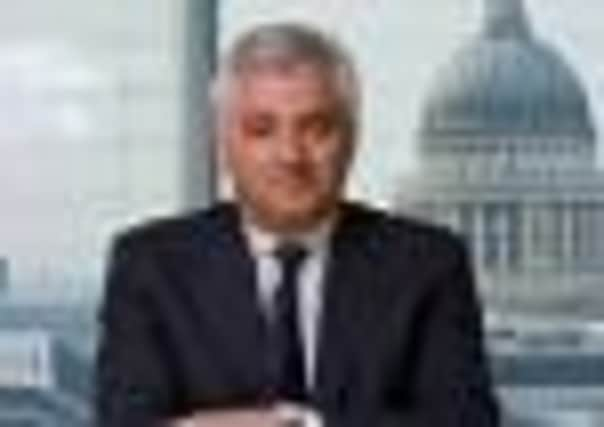Corporate world faces huge deficit in trust


Sir Nigel Knowles warned that the “serious trust deficit” has profound implications for business and called on company leaders to “stand up and be counted”.
The managing partner of DLA Piper said the breakdown in trust in UK plc is being echoed across Europe and the Middle East and represents “a significant anchor to our growth”.
Advertisement
Hide AdAdvertisement
Hide Ad“The damage done to trust is at least as important as the more tangible visible effects of the economic downturn that we see all around us,” he told an audience at Sheffield University last night.
He added: “Never has the success of business been so critical to the future of our economy.
“Yet at the same time, never has business been held in such poor regard by those whose opinion matters.
“And never has the list of those whose opinion matters been longer.”
Advertisement
Hide AdAdvertisement
Hide AdThe 54-year-old Sheffield-born lawyer said the erosion of trust happened slowly over many years but has accelerated as a result of the global economic crisis, 24-hour news coverage and the growth of social media and “now looks more like a chasm”.
Sir Nigel said the crisis in Europe stems from the financial markets’ lack of trust in “the warm words” of eurozone politicians, while the Arab Spring wave of revolutions was triggered by the breakdown of the social contract in many Middle Eastern countries.
DLA Piper commissioned research into corporate trust, which quizzed 50 board directors at FTSE100, FTSE250 and large privately owned businesses.
They said that the environment of trust has changed dramatically over the last decade, especially in the aftermath of the financial crisis. Sir Nigel said: “Today the presumption is that business is fundamentally untrustworthy, unless it can actively prove itself to be deserving of trust.
Advertisement
Hide AdAdvertisement
Hide Ad“Individuals are increasingly more inclined – and technologically empowered – to judge, publicise, comment on and criticise a company’s actions.”
He said it was “another matter” whether they have anything worthwhile to say.
Sir Nigel added: “There was a time when businesses need only care about their shareholders.
“Today, business has to be prepared to explain – and often to justify – their actions to a stakeholder audience that includes shareholders, employees, customers, business partners, suppliers, the media, governments, regulators and NGOs.”
Advertisement
Hide AdAdvertisement
Hide AdThe rise of social media is putting business under an unparalleled level of scrutiny, which is accompanied by a discomforting loss of control, he said.
DLA Piper’s research found that business leaders were sceptical about the increase in regulations that followed the economic crisis, which some believed “crushes the space where trust can form”.
Sir Nigel said: “Regulation is what you must do. Best practice is what you should do. You can’t regulate trust into existence and you can’t legislate to make people trustworthy.”
To rebuild corporate trust, business leaders must communicate more often and more effectively and “stand up and be counted”, he said.
Advertisement
Hide AdAdvertisement
Hide AdHe said personality-led businesses enjoy high levels of public trust and named Steve Jobs of Apple, Sir Richard Branson of Virgin and Warren Buffett of Berkshire Hathaway as good examples of companies that have strong associations with individuals.
“People felt they could trust Steve Jobs,” he added.
“Customers trusted him to deliver extraordinary products that were a delight to use.
“Analysts trusted him to deliver positive results quarter after quarter. Even his competitors paid tribute to his vision and inspiration.”
As a consequence of being trusted, Sir Nigel said businesses can enjoy a massive competitive advantage. “Trust is increasingly a defining characteristic of successful businesses and business leaders.”
Advertisement
Hide AdAdvertisement
Hide AdHe added: “The challenge is to rebalance trust just as rebalance the other parts of the economy. We cannot afford to assume that trust in business will return simply as a consequence of prosperity.”
Yorkshireman at the helm
SIR Nigel Knowles might be running an international law firm with 76 offices in 31 countries, but he will always be a Yorkshireman “with all the benefits”.
He was born in Sheffield and trained with the city firm Broomhead & Neals and, following a long period of expansion and change, is now leading the company’s successor, DLA Piper.
Based on revenues and number of lawyers, it is reckoned to be the largest law firm in the world. It has offices in Leeds and Sheffield.
Sheffield University has awarded Sir Nigel a visiting professorship and honorary doctorate.